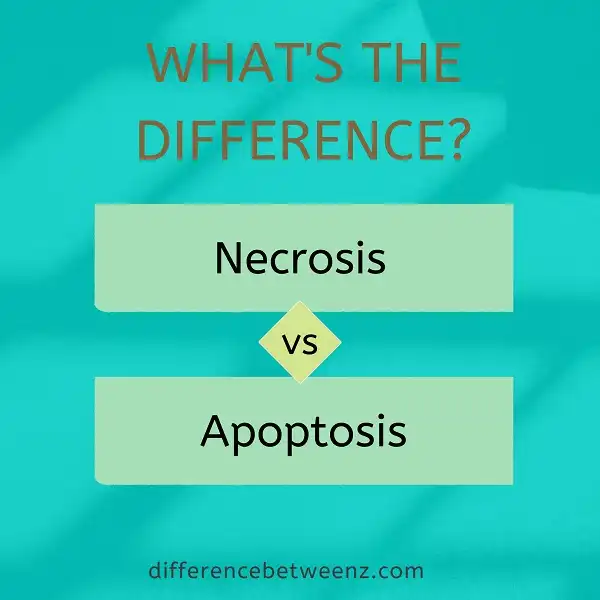Necrosis and apoptosis are two types of cell death that can occur in the body. Necrosis is a type of cell death that is caused by an external injury or trauma, while apoptosis is a type of cell death that is programmed by the body. Let’s take a closer look at these two types of cell death to better understand their differences.
What is Necrosis?
Necrosis is a type of cell death that occurs when the cells are damaged beyond repair. Necrosis is different from apoptosis, or programmed cell death, in which the cells die in a controlled manner. Necrosis can be caused by physical trauma, such as burns or freezing; chemical damage, such as exposure to toxins; or biological damage, such as infection. Necrotic cells often swell and burst, releasing their contents into the surrounding tissues. This can trigger an inflammatory response, and if necrosis occurs in an organ, it can lead to organ failure. Necrosis is a common cause of tissue damage after heart attacks and strokes. In some cases, necrosis can be beneficial, such as when it helps to kill cancer cells. However, necrosis can also be detrimental, causing tissue damage and potentially leading to death.
What is Apoptosis?
Apoptosis is a process of cell death that occurs in multicellular organisms. When cells are damaged beyond repair or are no longer needed, they undergo apoptosis in order to avoid causing harm to the organism as a whole. Apoptosis is characterized by a number of morphological changes, including blebbing, cell shrinkage, chromatin condensation, and the fragmentation of DNA. These changes lead to the eventual destruction of the cell, and the release of its contents into the extracellular space. Apoptosis plays an important role in the development and tissue homeostasis, and malfunctions in this process can lead to cancer and other diseases.
Difference between Necrosis and Apoptosis
Necrosis and apoptosis are two processes that result in the death of cells. Necrosis is a type of cell death that is characterized by the deterioration of the cell. This can be caused by a number of factors, including infection, trauma, or exposure to toxins. In contrast, apoptosis is a type of cell death that is carefully regulated by the cell itself. This process is often used during development, as it helps to sculpt the tissues and organs. Necrosis is an uncontrolled process, while apoptosis is a highly regulated process. As a result, necrosis often results in inflammation and tissue damage, while apoptosis does not.
Conclusion
Necrosis and apoptosis are both types of cell death, but they are caused by different mechanisms and result in different outcomes. It is important to be able to distinguish between the two because necrosis can often be treated, while apoptosis is usually irreversible.


